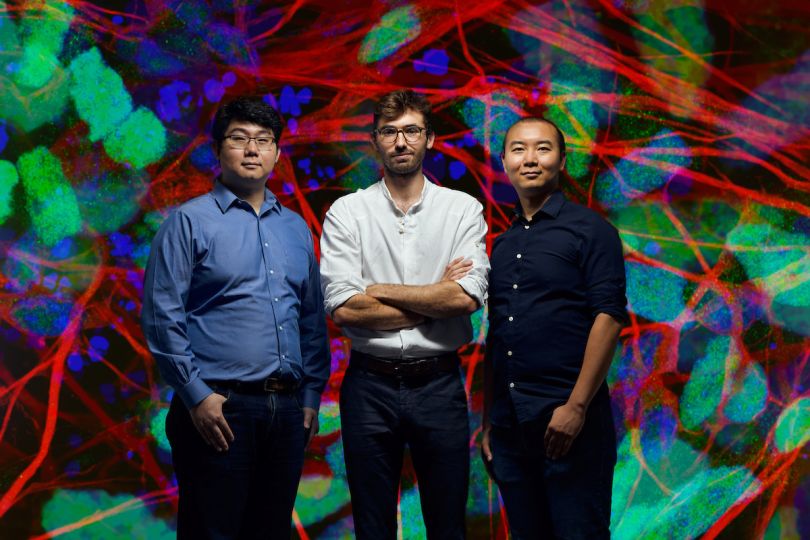
About nine million people die each year of neurological disorders like stroke and dementia, according to the World Health Organization, making neurological disorders the world’s leading cause of disability and second-leading cause of death.
Researchers have made great strides in brain-computer interface (BCI) technology, which has allowed them to decode, map and augment electrical signals in the brain using implanted electrodes.
Existing BCI technology is limited, however, and its relatively stiff materials can cause scarring and infection, according to neurotechnology startup Axoft, which has developed “malleable yet resilient” neural implants that are “as soft as the brain,” according to a news release.
The company publicly launched this week with a $8 million capital raise, which will be used to fund pre-clinical studies with the FDA and to create prototypes of its neural implants. The seed funding round was led by MIT venture firm The Engine.
Axoft will participate in the FDA’s Breakthrough Devices Program, which will allow the company to accelerate the development, assessment and review of its technology.
Chief Executive Officer Paul Le Floch and Chief Technology Officer Tianyang Ye founded Axoft last year alongside scientific advisor Jia Liu, an assistant professor at Harvard University’s School of Engineering and Applied Sciences.
Axoft’s technology was based on Liu’s work in developing flexible nanoelectronics that mimic the mechanical and structural properties of the brain. Le Floch further researched this topic while completing his doctorate degree in mechanical engineering and material sciences at Harvard.
Axoft said its advances in material science allow the company’s device to be implanted in a patient’s brain and track its signals over time without causing harm. The device’s malleability also increases its lifespan, which in turn reduces the need for repeated surgeries to replace the implant.
The implants also have a higher density of sensors than existing technologies, allowing more information to be exchanged. Existing BCI systems are limited to anywhere from 16 to 96 electrodes, whereas Axoft’s softer, more flexible electronics can embed up to 1,024 electrodes in a strand thinner than a credit card, according to the company.
“[Technological] leaps in the semiconductor industry, development of novel advanced materials, chip design improvements, and progress in minimally invasive surgical approaches have opened opportunities for neurotechnology to be brought into the clinic and really help patients,” Le Floch said in a statement.
Le Floch told Built In Boston via email that Axoft plans to double its nine-person team as a result of this new capital raise.
In addition to this funding, Axoft announced that Reed Sturtevant, general partner at The Engine, would join its board of directors.
“Axoft is taking a dramatic step forward from the fundamental brain-computer interface technologies and could be relevant for many conditions,” Sturtevant said in a statement. “This has the potential to be analogous to a pacemaker for the brain — a minimally invasive device that can listen, sense and stimulate a response. Imagine the impact this will have on neurodegenerative conditions like Parkinson’s and Alzheimer’s diseases, seizures and movement disorders.”




